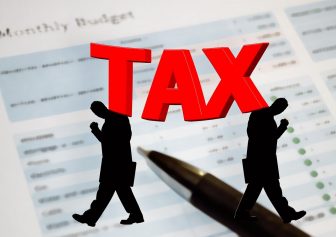 Inheritance Tax receipts for April 2024 to February 2025 totalled £7.6bn, which is £0.8bn higher than the corresponding period last year, HM Revenue & Customs has revealed.
Inheritance Tax receipts for April 2024 to February 2025 totalled £7.6bn, which is £0.8bn higher than the corresponding period last year, HM Revenue & Customs has revealed.
This is £700m higher than the same ten months last year and continues the upward trajectory over the last two decades.
HMRC raised £7.499bn in 2023-4 tax year, but these figures show that they are well on track to smash through this figure for the 2024-5 tax year end.
Ian Dyall, head of estate planning at wealth management firm Evelyn Partners, commented: “With one month of the financial year’s tax receipts to go, inheritance tax revenues are on course to exceed last year’s total by nearly 12%, driven by the engine of fiscal drag.
“Property and investment assets continue to grow in money terms so that more modest estates in real terms are exceeding the frozen nil-rate bands, and those nil-rate bands start to look less meaningful for larger estates, protecting an ever-smaller proportion of them against IHT.
“Further moves on taxation at next Wednesday’s Spring Statement are unlikely, not least because most of the tax measures announced at the autumn Budget have yet to take effect or be confirmed in law. Those eyeing the event nervously from an IHT point of view can probably relax – and even hasty decisions around drawing on pensions, being made after the Budget announcement that they will be included from April 2027 in IHT liabilities, are probably worth reviewing, preferably with professional help.
“If the chancellor is really backed into a fiscal corner, a slim possibility is that she will again extend the freeze on personal tax bands and thresholds from April 2028 – but the IHT NRBs are already frozen until April 2030 after the Budget, so even change there is unlikely.
“However, it would not be surprising if the chancellor announces a tax review or consultation or two, and the IHT gifting regime is one area where the cash-strapped Labour government could look to bring in more revenue. While such a process would be billed as a “simplification” of the gifting rules – which are admittedly confusing – the aim would be to block off some of the escape routes that estates look to when trying to mitigate a future IHT bill.
“We have seen many clients quite sensibly increase gifting since as far back as the election – some simply setting the seven-year clock ticking for potentially exempt transfers with large one-off gifts, others using lesser-known methods like regular gifts out of surplus income.
“Either way, as the trend is most definitely that many estates will face significantly higher IHT bills over the coming years, with possibly fewer ways to mitigate them, then the option of insuring against the liability is also growing in popularity. Since October we have already seen many more clients seeking whole of life cover aimed at covering a future IHT bill so their beneficiaries will not have to foot it, and we expect to see many more do this in the future as it is not yet a widely understood option – particularly among families who are not taking professional advice.”
According to Nicholas Hyett, investment manager at Wealth Club, inheritance tax continues to be “a meal ticket for HMRC”.
He continued : “It [the levy] may only affect a small percentage of estates, but that number is growing. OBR estimates suggest nearly 10% of estates will pay death duties by 2030 due to increasing house prices, changes to inheritance tax rules and years of allowance freezes.
“While we don’t expect to see any more changes to Inheritance Tax announced at next week’s Spring Statement, the changes announced in the autumn are yet to kick in and will increase the inheritance tax take substantially over the next few years.
“The main inheritance tax allowance has now been frozen at £325,000 for 15 years, and remains frozen for another five years until 2030, while the £175,000 residence nil rate band hasn’t changed since 2020. These freezes are a form of stealth tax, which allows the government to increase their take without a backlash from a headline grabbing tax hike, but still contribute to the highest tax burden in 70 years.
“With inheritance tax reliefs for AIM and private businesses set to be severely restricted, it has rarely been more difficult to avoid the taxman having your cake and eating it too.
“Lifetime gifts are probably more attractive than ever, particularly regular gifts out of leftover income since these are immediately free of inheritance tax. This approach is particularly popular with grandparents, who use it to pay for things like school or university fees. Avoiding double taxation from inheritance tax is a nice added sweetener.”


Comments are closed.